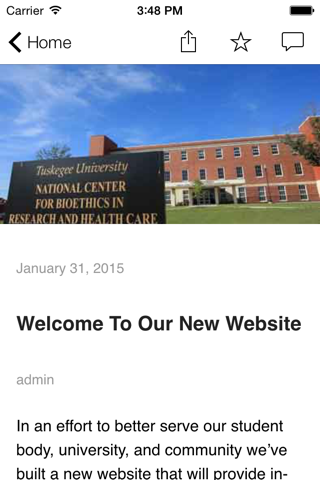
Tuskegee National Center for Bioethics in Research and Health Care
From 1932 to 1972, the U.S. Public Health Service conducted a study involving syphilitic African American men from rural Macon County, Alabama. No white men were included in the study. Over the course of 40 years, scientists tracked the progression of the disease in the participants without ever telling them that they had syphilis or informing them of treatment options — even after penicillin had been proven to be a quick and effective cure. In fact, the participants were actually prevented from receiving treatment. The study halted only after an Associated Press reporter exposed the unethical methods being employed.
In his public apology May 16, 1997, President Clinton called the study “something that was wrong — deeply, profoundly, morally wrong — to our African American citizens. I am sorry that your Federal Government orchestrated a study so clearly racist.”
The President announced during his apology the award of a $200,000 grant to Tuskegee University to initiate plans for a National Center for Bioethics in Research and Health Care. Since that date, more than twenty million dollars in grants and pledges have been made to Tuskegee University to help establish and operate the Center. Ten million of these dollars have been given to the Center, to be used over a five year period by the Centers for Disease Control and Prevention (CDC). This application provides content form the Tuskegee Bioethics Center and resources for other interested parties.



